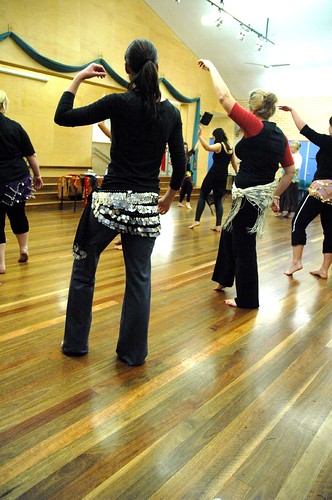In most cases of studio owners I've encountered, your teachers are considered employees, not independent contractors.
However, the business of dance studios is a very diverse group when it comes to schedules and employee structures. One studio could be run like a fitness club with changing instructors and schedules, another could run year-round. Between these extremes exist a multitude of other possibilities.
And the consequence of choosing incorrectly can be costly. If you pay your employee as an independent contractor when they should be an employee, you and your teacher could owe back taxes and employment taxes, complete with interest and penalties!
Quick aside: The rules I will be discussing will apply to the United States. If you're outside the U.S., consult with an accountant or lawyer for the laws governing your business.
Employee or Independent Contractor?
It all comes down to how much control the SO has over the employee.The Internal Revenue Service (IRS) says, "[as a] general rule...an individual is an independent contractor if the payer [the studio owner] has the right to control or direct only the result of the work and not what will be done and how it will be done." (Source)
If that sentence made your brain hurt, they also give some guidelines to look at to see how your teachers measure up.
The Guidelines
It is best to look at all of these factors to help weigh in on if a teacher is an employee or independent contractor.1) Behavioral
IRS: "Does the company control or have the right to control what the worker does and how the worker does his or her job?"
Translation: Does the Studio Owner control what and how the teacher runs their class?
- If you have a syllabus, guidelines, training, evaluations or dress code that governs your teacher, then they are not entirely independent.
- If you set the schedule and class time for your teacher, they are not independent.
- If you purchase or provide most of the supplies and equipment (music, props, etc), they are not independent.
- Other questions to consider: Does the studio advertise for the teacher's classes? Does the studio collect money for the classes or does the teacher? Who sets the class price?
2) Financial
IRS: "Are the business aspects of the worker’s job controlled by the payer?"
Translation: How is the teacher paid, and what expenses are covered by the SO versus the teacher?
- An independent contractor usually gets paid a flat fee for the job (think master teacher or a fitness instructor who splits the profits with you 50/50), instead of a salary.
- An employee usually gets an hourly rate or salary.
- If you pay for your teacher's training or continuing education, they are most likely an employee.
- If your teacher holds classes at other studios or at many different locations, they might be independent.
3) Type of Relationship
 IRS: Are there employee type benefits? Will the relationship continue and is the work performed a key aspect of the business?
IRS: Are there employee type benefits? Will the relationship continue and is the work performed a key aspect of the business?
Translation: How involved with the studio is the teacher?
- An independent contractor does not usually receive benefits (paid time off, bonuses, insurance).
- An independent contractor is usually only hired for a specific time-period or project (six week class or choreography). An employee is hired with the intention of keeping them for a longer time period (possibly indefinitely).
- If the teacher do a major portion of the studio's total teaching, they are probably an employee. If they are providing an extra class that is not the main portion of your studio (like Zumba or birthday parties), they may be an independent contractor.
Examples of Independent Contractors
Here is a list of people who are commonly independent contractors at a dance studio. You should still weigh the factors above before you can call them an independent contractor.- Zumba or specialty class instructor
- A choreographer hired for performance team
- Master class teacher
- Teachers for private lessons
- Birthday party entertainer / instructor
- Maintenance or cleaning person / company
- Voice or music lesson instructor (if they set their own time)
W-2 or 1099? And what about insurance?
Stay tuned (ooh Accounting Channel, my favorite!) for Part 2, which will help you figure out what to do at the end of the year for your employees and independent contractors and what else you should consider when hiring independent contractors.Disclaimer: While I have a degree in Accounting, I am not a Certified Public Accountant (CPA). Everyone's individual tax situation is very different and if you have a specific question, you should seek out a tax professional who can give you specific advice pertaining to your situation.



No comments:
Post a Comment